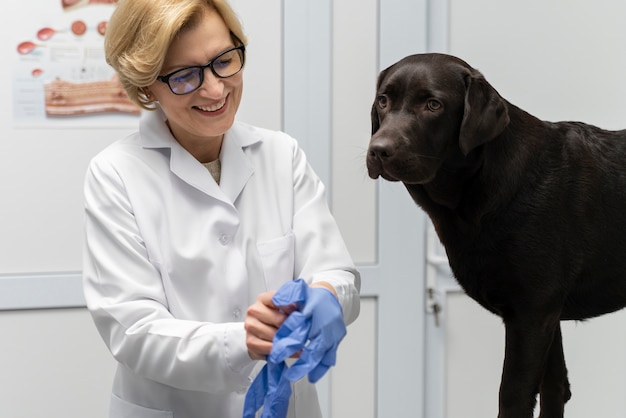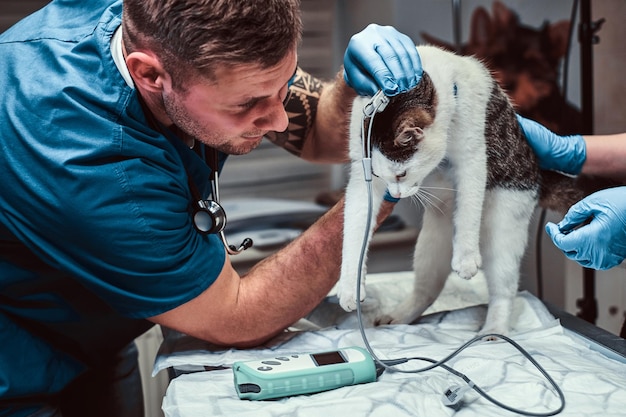Why Routine Pet Lab Testing Matters for Early Detection


Why Routine Pet Lab Testing Matters for Early Detection
Caring for your pet means more than just providing love, good food, and plenty of playtime. One of the most important steps you can take as a responsible pet owner is staying proactive about your companion’s health through routine wellness exams and lab testing. At Pet Method Dallas Fort Worth, located at 260 N Coit Rd, Suite 130, McKinney, TX 75071, our veterinary team is dedicated to helping you safeguard your pet's well-being through comprehensive care and early detection strategies.
Many pet owners in McKinney and surrounding communities want to know how they can help their pets live longer, healthier lives. One of the most effective tools is routine pet lab testing, which can reveal subtle changes in your pet’s body long before outward symptoms appear. In this blog, we’ll explore what routine lab testing means, why it’s essential for early detection of illness, how it fits into your pet’s regular wellness plan, and when to schedule these important screenings.
If you’re looking for a "vet near me" who prioritizes preventive care, you’ll discover how pet diagnostic laboratory services in McKinney are the key to giving your pet the best chance at a long and happy life.
Recognizing the Need: How Lab Testing Supports Early Detection
It’s natural to assume that if your pet is energetic, eating well, and acting normally, there’s nothing to worry about. However, many common health concerns in dogs and cats begin with subtle changes that are invisible to the naked eye. Conditions such as kidney disease, diabetes, thyroid disorders, and early infections often progress quietly inside the body.
Key warning signs that might prompt pet owners to consider lab testing include unusual changes in appetite, increased thirst, sudden weight loss or gain, persistent vomiting or diarrhea, unexplained lethargy, or changes in urination habits. Sometimes, these symptoms are mild or intermittent, making them easy to overlook. Other times, a pet may appear completely healthy even as underlying issues develop.
Routine wellness exams, paired with regular pet lab testing, give our veterinarians the ability to monitor your pet’s internal health status over time. This approach lets us spot trends, catch abnormalities early, and intervene before minor issues become major health concerns. For pets in McKinney, where seasonal allergies or regional parasites can also influence health, these screenings are especially valuable.
Understanding the Importance of Routine Pet Lab Testing
Lab testing is a critical component of preventive veterinary care. It involves analyzing samples such as blood, urine, or feces to gather information about how your pet’s organs and systems are functioning. These tests can detect a range of issues, from infections and organ dysfunction to hormonal imbalances and signs of chronic disease.
Routine pet lab testing is typically recommended during annual wellness exams, but the frequency may increase for senior pets or those with ongoing health conditions. By establishing a baseline for your pet’s health, our veterinary team can identify even minor deviations from the norm. For example, a slight increase in liver enzyme levels or the presence of protein in the urine can signal the earliest stages of disease.
In McKinney and surrounding areas, factors such as local climate, regional parasites, and environmental allergens can influence the types of conditions your pet may be exposed to. Our team tailors each pet’s diagnostic plan to their lifestyle, age, breed, and risk factors, ensuring that pet diagnostic laboratory services in McKinney are both thorough and personalized.
If you’re curious about the types of tests we offer or want to know how screenings work, you can learn more about our diagnostic laboratory services for pets in McKinney.
What Tests Are Included in Routine Screenings?
Routine veterinary diagnostics often include a complete blood count (CBC), chemistry panel, urinalysis, and fecal examination. The CBC evaluates red and white blood cells, as well as platelets, to detect anemia, infections, or inflammation. Chemistry panels assess organ health, such as the liver and kidneys, while urinalysis provides information about hydration, kidney function, and possible infections.
Fecal examinations are important for detecting intestinal parasites , a particular concern in Texas, where warm weather allows parasites to thrive year-round. Additional tests, such as thyroid screening or heartworm testing, may also be recommended based on your pet’s age, breed, or medical history.
The Role of Lab Testing in Your Pet’s Treatment Plan
Once our veterinarians have results from your pet’s lab tests, we can make informed decisions about their care. For healthy pets, normal lab values provide peace of mind and a baseline for future reference. When abnormalities are found, early diagnosis means treatment can begin right away, often before symptoms become severe.
Treatment options depend on the specific condition detected. For example, early-stage kidney disease may be managed with dietary changes, increased hydration, and medication, while infections are typically addressed with antibiotics or antiparasitic medications. In some cases, further diagnostic exams such as X-rays or ultrasounds may be needed to pinpoint the issue; our clinic conveniently offers these advanced services in-house.
For pets with chronic health issues, ongoing lab testing allows us to monitor progress and adjust treatment as needed. This proactive approach helps prevent complications and supports your pet’s long-term well-being. If you’re interested in understanding more about how we approach diagnostic workups, our comprehensive diagnostic exams page offers additional insights.
Prevention and Home Care: Supporting Your Pet’s Health Between Visits
Pet owners play a crucial role in maintaining their animal’s health between veterinary visits. While routine pet lab testing provides essential data, there are steps you can take at home to support your pet’s wellness and help detect problems early.
Observing your pet’s daily habits is one of the best tools you have. Notice changes in eating, drinking, or bathroom routines, as well as shifts in mood, energy level, or appearance. Regular grooming sessions give you a chance to check for lumps, bumps, skin changes, or signs of discomfort. Maintaining a consistent schedule for preventive medications, such as heartworm and flea control, also minimizes the risk of many common illnesses.
Scheduling routine wellness exams is another fundamental part of prevention. These visits allow our veterinary professionals to perform thorough physical exams, update vaccinations, discuss nutrition, and determine the right schedule for ongoing lab screening. By combining home observation with professional care, you ensure your pet receives the most comprehensive protection possible.
If you’re unsure when to schedule your pet’s next wellness examination, you can find more information about our annual wellness exams for pets in McKinney.
When to Seek Veterinary Care: Knowing the Right Time for Testing
Many pet owners wonder how often they should schedule pet lab testing or what symptoms should prompt an urgent veterinary visit. As a rule of thumb, adult dogs and cats should have wellness exams and basic lab work at least once a year. Senior pets and those with chronic health concerns may need more frequent checkups and testing to monitor for age-related changes or complications.
You should contact our veterinary team right away if you notice concerning signs such as persistent vomiting or diarrhea, loss of appetite, difficulty breathing, unexplained weight loss, behavioral changes, excessive drinking or urination, or visible pain. These symptoms can indicate underlying conditions that require prompt diagnosis and treatment.
Additionally, if your pet is due for annual vaccinations, parasite prevention, or dental care, these appointments are an ideal opportunity to include routine wellness exams and lab testing. Our veterinary professionals can help you determine the best screening schedule based on your pet’s individual needs, breed, and lifestyle.
We always recommend consulting with our veterinarians if you have questions or concerns about your pet’s health. Prompt action and regular monitoring are the keys to catching problems early and ensuring the best possible outcome.
Give Your Pet the Advantage of Early Detection
Routine pet lab testing is one of the most powerful tools for protecting your pet’s health. At Pet Method Dallas Fort Worth, we believe every pet in McKinney deserves thorough, preventive care tailored to their unique needs. Regular lab screenings during routine wellness exams provide insights that go far beyond what a physical exam alone can reveal.
If you’re searching for a "vet near me" that values early detection and personalized care, we invite you to experience the difference at our McKinney clinic. To schedule your pet’s next wellness exam or discuss lab testing options, call our veterinary team at (469) 581-8609 or visit us at 260 N Coit Rd, Suite 130, McKinney, TX 75071. Routine pet lab testing in McKinney offers your furry friend the best chance for a long, happy, and healthy life.
Our team is here to answer your questions, provide expert guidance, and partner with you every step of the way. Take the first step toward peace of mind , schedule an appointment today and discover compassionate, quality veterinary services near you.
Disclaimer: This blog is for educational purposes only and should not be used as a substitute for professional veterinary advice. Always consult your veterinarian for concerns specific to your pet’s health.


















